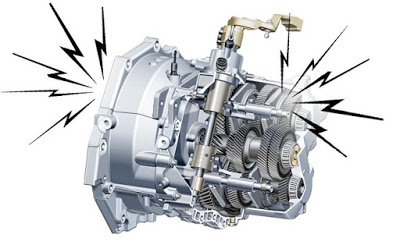 There are many ways to judge the condition of a car, but one of the most effective is simply listening to it. A healthy car should growl into life with the first twist of the key, and purr like a placid house cat when it’s stationary. As I’m sure you’re aware, there are many other, less desirable noises that a car can make, which should set off alarm bells in any driver’s head. Here are some of the most common ones, and what they can mean.
There are many ways to judge the condition of a car, but one of the most effective is simply listening to it. A healthy car should growl into life with the first twist of the key, and purr like a placid house cat when it’s stationary. As I’m sure you’re aware, there are many other, less desirable noises that a car can make, which should set off alarm bells in any driver’s head. Here are some of the most common ones, and what they can mean.
I figured I’d start this post off with the most common noise; clunking in the axels. If you notice a loud, deep clunking coming from somewhere in the chassis when you’re driving over potholes or even small bumps in the road, then something is certainly awry. One of the most common causes for this unpleasant sound is worn control-arm bushings, which is inevitable if you drive a car for long enough. Bad ball joints and poorly made stabiliser link-pins are also common causes which can lead to a harsh clunking sound in your axles. Sometimes though, the issue isn’t with the axles at all. When an exhaust system is slightly loose, it can jump around, knocking other parts of the car and making loud, percussive sounds.
Crunching gears is another common noise which might be making you and your passengers a little disconcerted. It’s extremely common for cars to make that low, sudden crunch whenever a gear is changed. Just because you’ve got three friends with the same issue, it doesn’t mean that you should cheerily go on ignoring it! This crunch could be caused by a worn-out synchroniser, which is a part of the transmission allowing it to shift from one ratio to the next. Dragging clutches (clutches that don’t disengage fully when you press the pedal down) are another common culprit. Unfortunately, there’s no quick fix for these kinds of issues, so you may have to get some clutch repair quotes from Whocanfixmycar.
One of the most unpleasant sounds you can ever hear from a car is that piercing, porcine squealing which happens when you work the engine a little hard. Your car may sound like it’s been possessed by demons, but it’s much more likely that the issue is down to the serpentine belt. Over time, the rubber in these components can become brittle and worn, and the tensioner can begin to fail. The rubber becoming worn isn’t really a big deal. You’ll be able to run on it for a while yet, provided you can put up with that squeal without losing your mind. If the tensioner is the issue, then the belt could be lacking in the correct pressure. This can eventually lead to slippage, harsher noises, and a much more dangerous issue altogether. The repairs for this kind of issue are very cheap and straightforward, so you’ve got no excuse to put it off!
If you keep frowning at your car and wondering what on earth that was, I hope this post shed some light on it!

